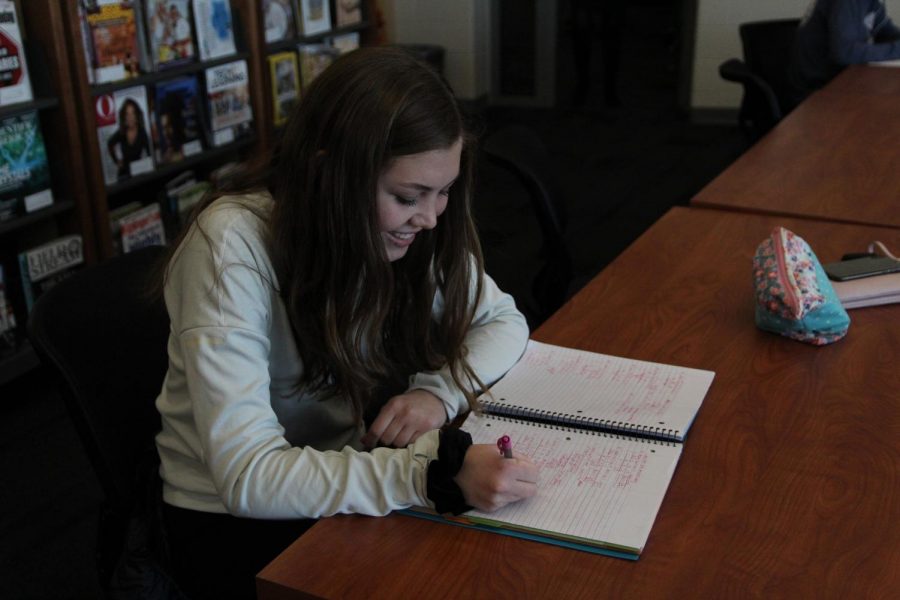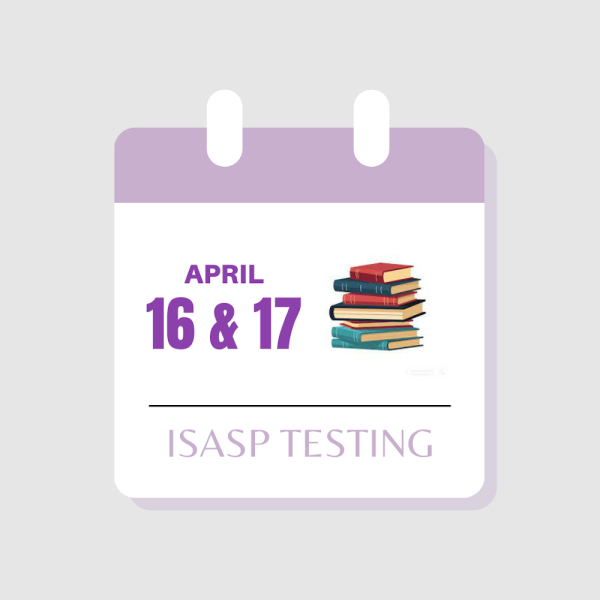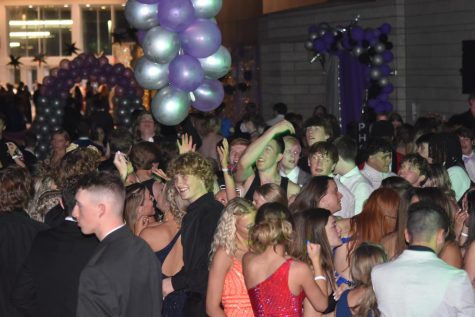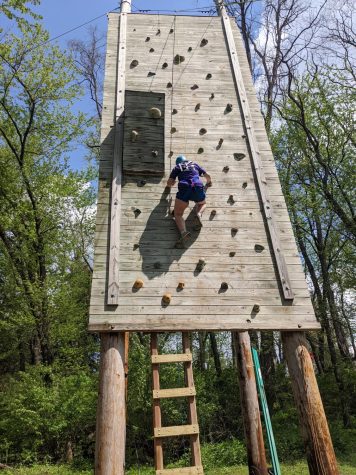Study Tips and Note-Taking
The view of good strategies of studying and taking notes from Liberty High School.
Finals week is coming up soon and students are preparing to take numerous tests in a range of classes in a short span of time. This can be very stressful, so here are some note-taking and study tips to prepare for tests more effectively.
To set yourself up for extensive success in a class, try to not sit by people you will be tempted to talk to because then there will not be as much focus on the curriculum being covered. Making sure that you can actually read the notes that you take. Being able to connect definitions to other concepts during the lecture/reading is important when it comes to writing down term definitions and taking notes. Breaking down the context in your own words and creating unique ways to remember things is key.
“During a lecture, make sure you are an active learner,” said Stacy Strief, social studies teacher. “Again, eliminate distractions and focus on what is being covered. Do not try to write down everything word for word- answer the essential question or learning objectives.”
Some good note-taking tips would be to color-code your notes into sections during a lecture. Color-coding notes based on units, importance, chapters, etc. This is just another way to stay organized and it will be easier to find content when it comes time to study.
“Sticky notes! They serve their purpose–not only do they stick in the books for reference, but they have notes on them that will stick in your brain for the test/essay/assignment,” Kedibona Ochs, English teacher said as some advice to improve note-taking.
Some other note-taking strategies would be to try finding a style that works for you such as Cornell, concept map or an outline. Cornell style consists of writing a title followed with keywords, such as quick notes, abbreviations, and key thoughts/learning objectives. Then, at the bottom of the paper proceed, write any questions and a summary of what you just took notes on a little more in-depth. When taking notes, take notes that will answer the essential question or learning objective of the lecture, take notes with a purpose.
“Highlighting one’s notes just to put emphasis on what the main ideas are or what the most important notes are from that section or day,” Ochs said.
Highlighting one’s notes just to put emphasis on what the main ideas are or what the most important notes are from that section or day. — Ochs
If you tend to struggle with note-taking, just writing something down instead of typing it into a doc is a good place to start. Studies show the ability to retain information better is correlated with writing it down.
Some good test-taking tips are to ask any questions you have related to the topic if you are confused about, before the test. Go in before school and ask that teacher for extra help in explaining anything if you need it. Use all of your resources like making extra time with your teacher to study and understand the content, study any worksheets you collected and take advantage of any study guide a teacher gives you. Procrastination and cramming all of the studying that needs to be done the night before a test will do no good. Spread out your studying a week before.
“It is beneficial to study the content as you go, mastering one area, then building on that and adding another layer… like an opinion,” Ochs explained.
When studying with a partner, going over the notes orally or having to teach someone else will determine whether or not you understand the content. Having a person to study with can hold you more accountable to actually studying the material for the test because you will have someone depending on you. Staying organized is key, by staying organized it can help you not have to think about what you have to do and where everything is so you can not make up any excuse to not study. Again, eliminating distractions you may have in the class will help focus attention on what the teacher is explaining and so there is better recollection of what you are learning.
“Remember the five P’s: Proper Preparation Prevents Poor Performance,” said Ochs.
From note-taking to paying attention in class, eliminating distractions and studying effectively will set you up for your success in a class.

Ava Fort, sophomore at Liberty, is a first year staff member. She runs on the Liberty track team and plays on the Liberty softball team and enjoys hanging...














